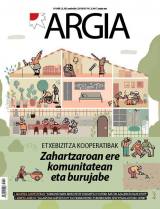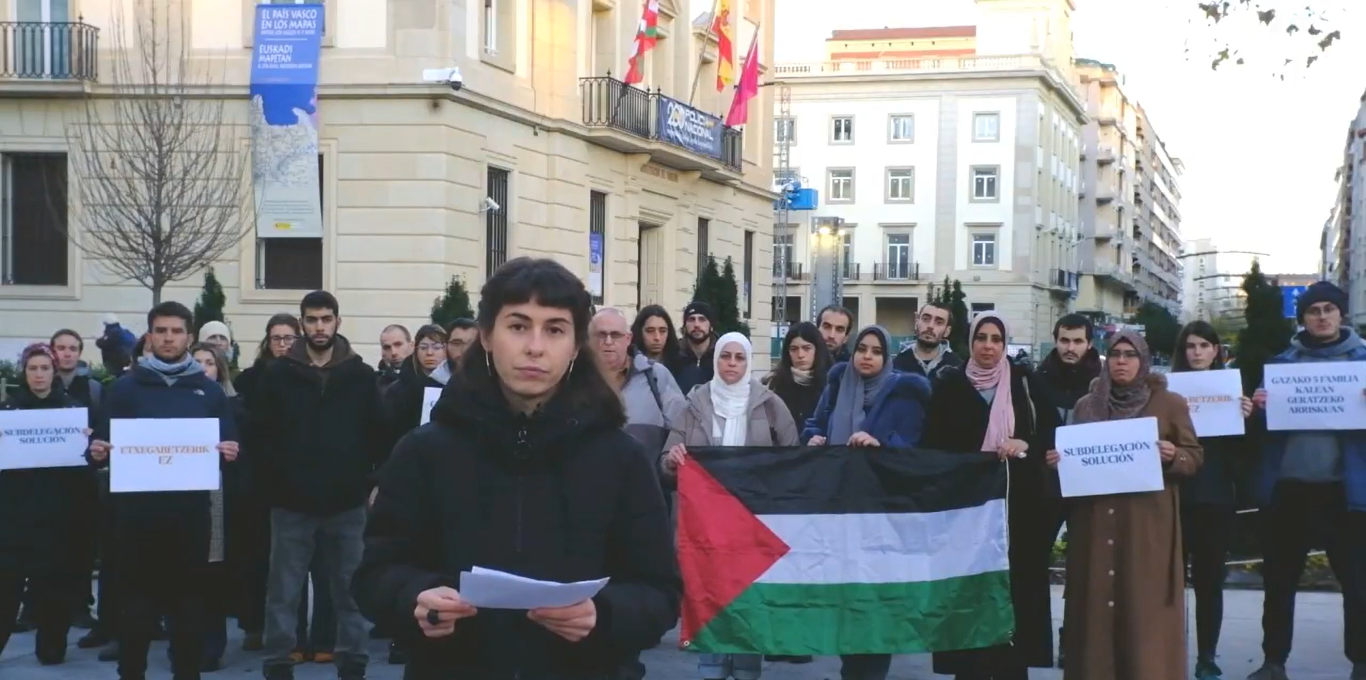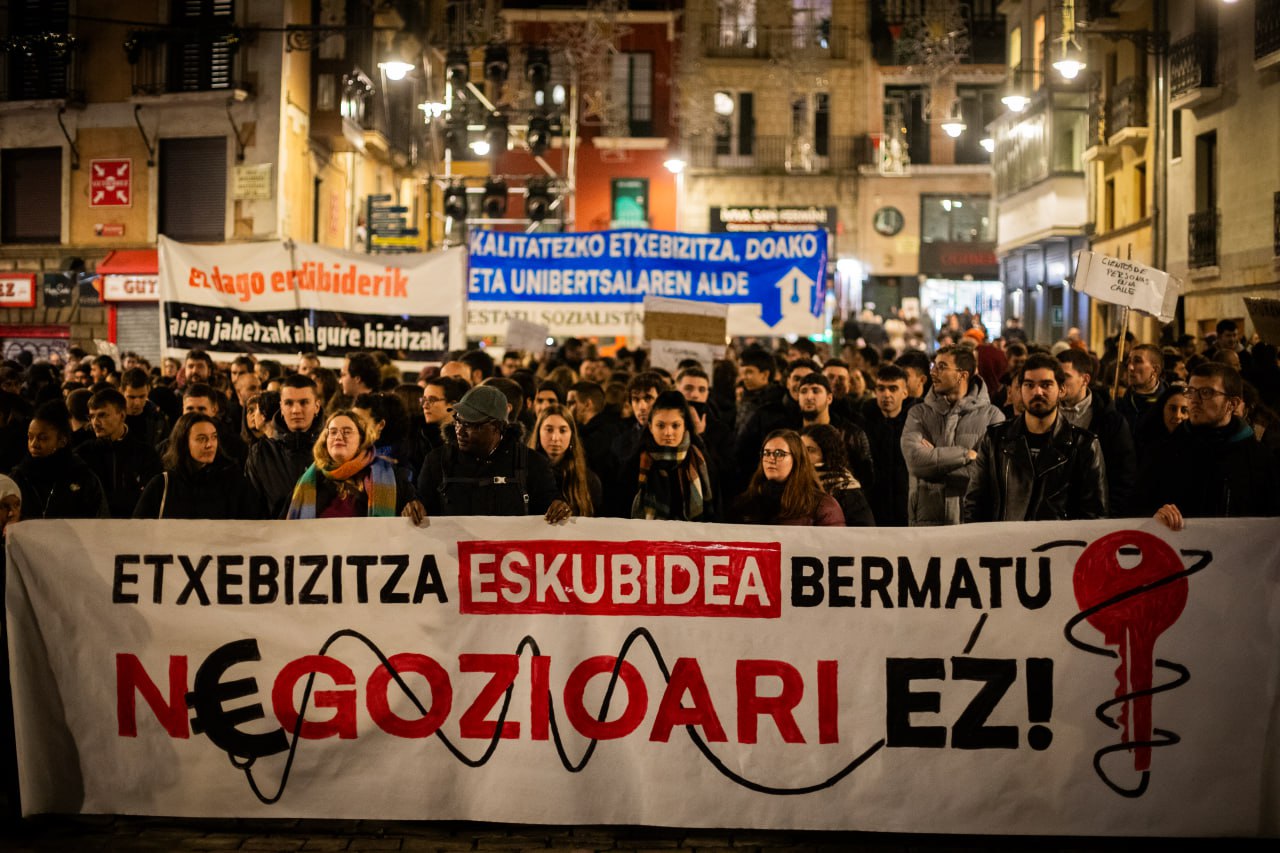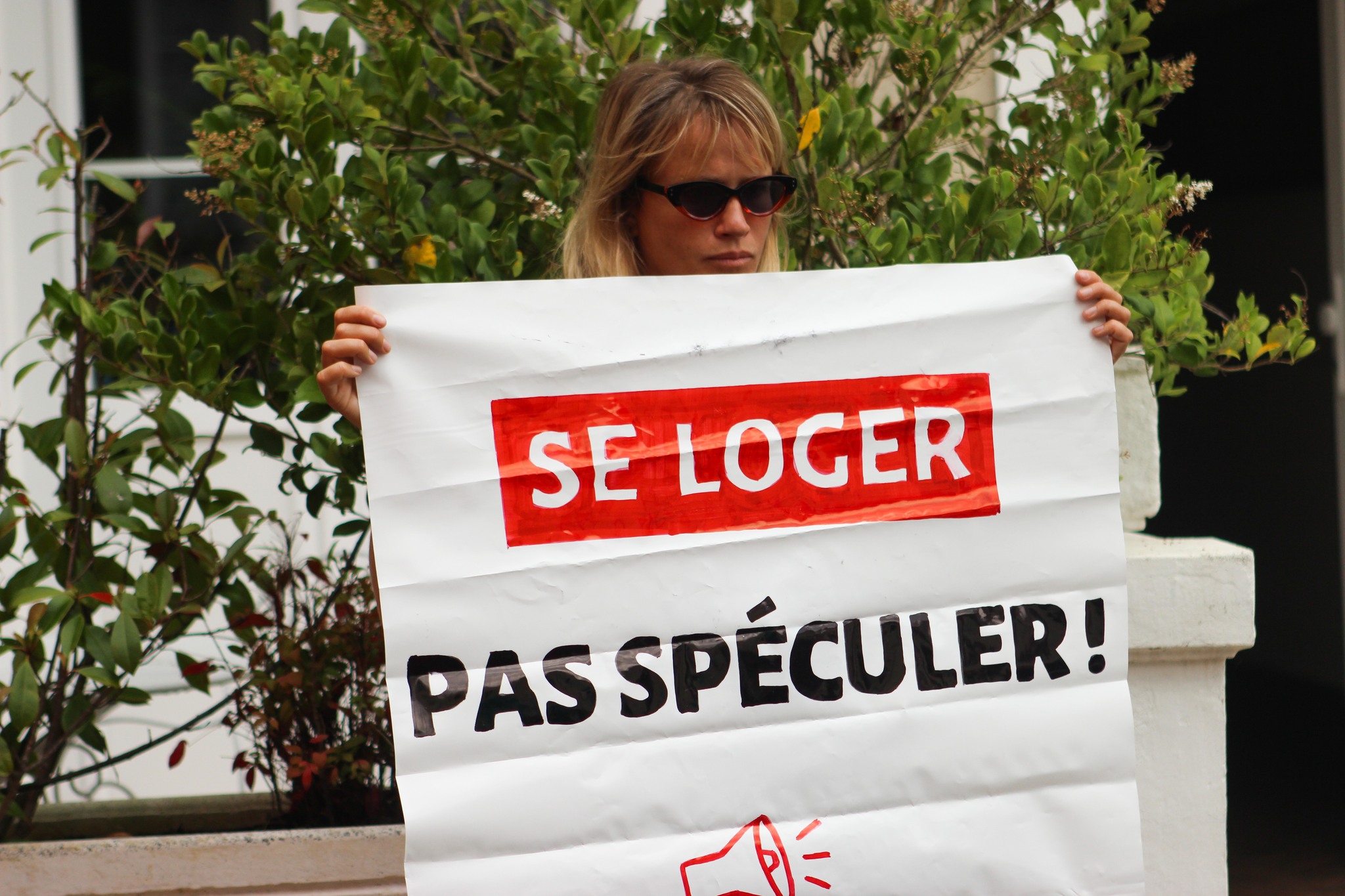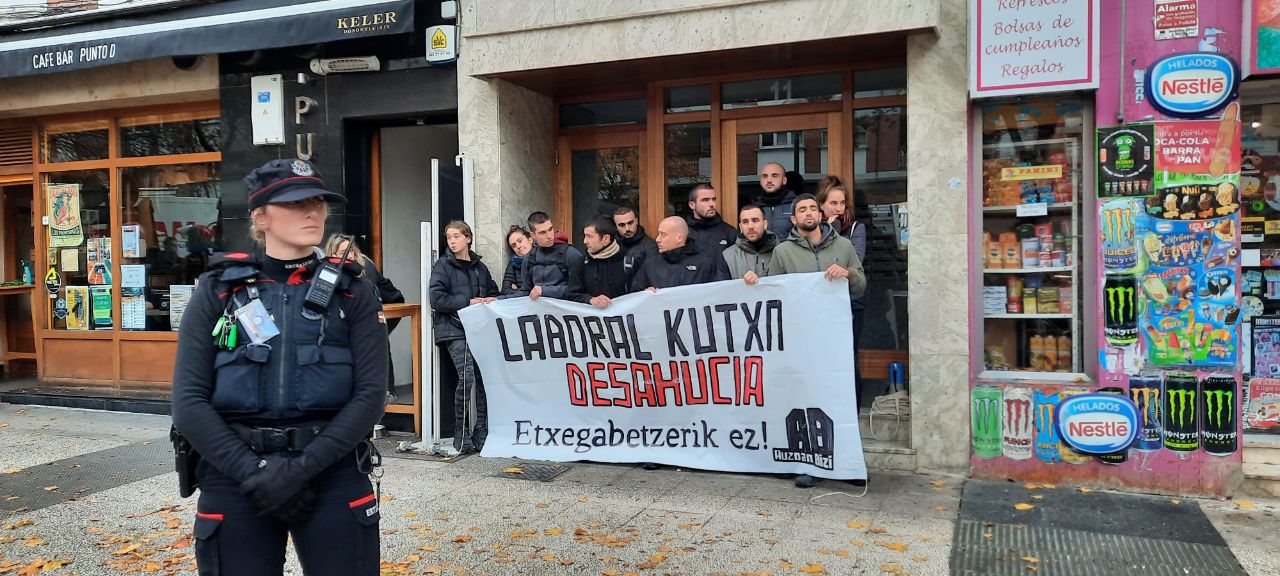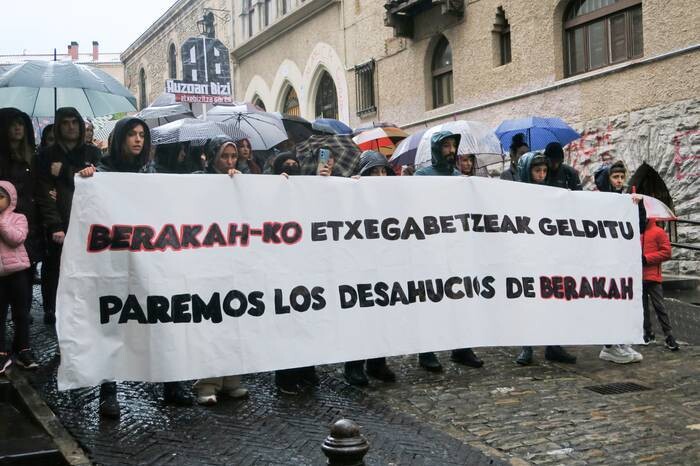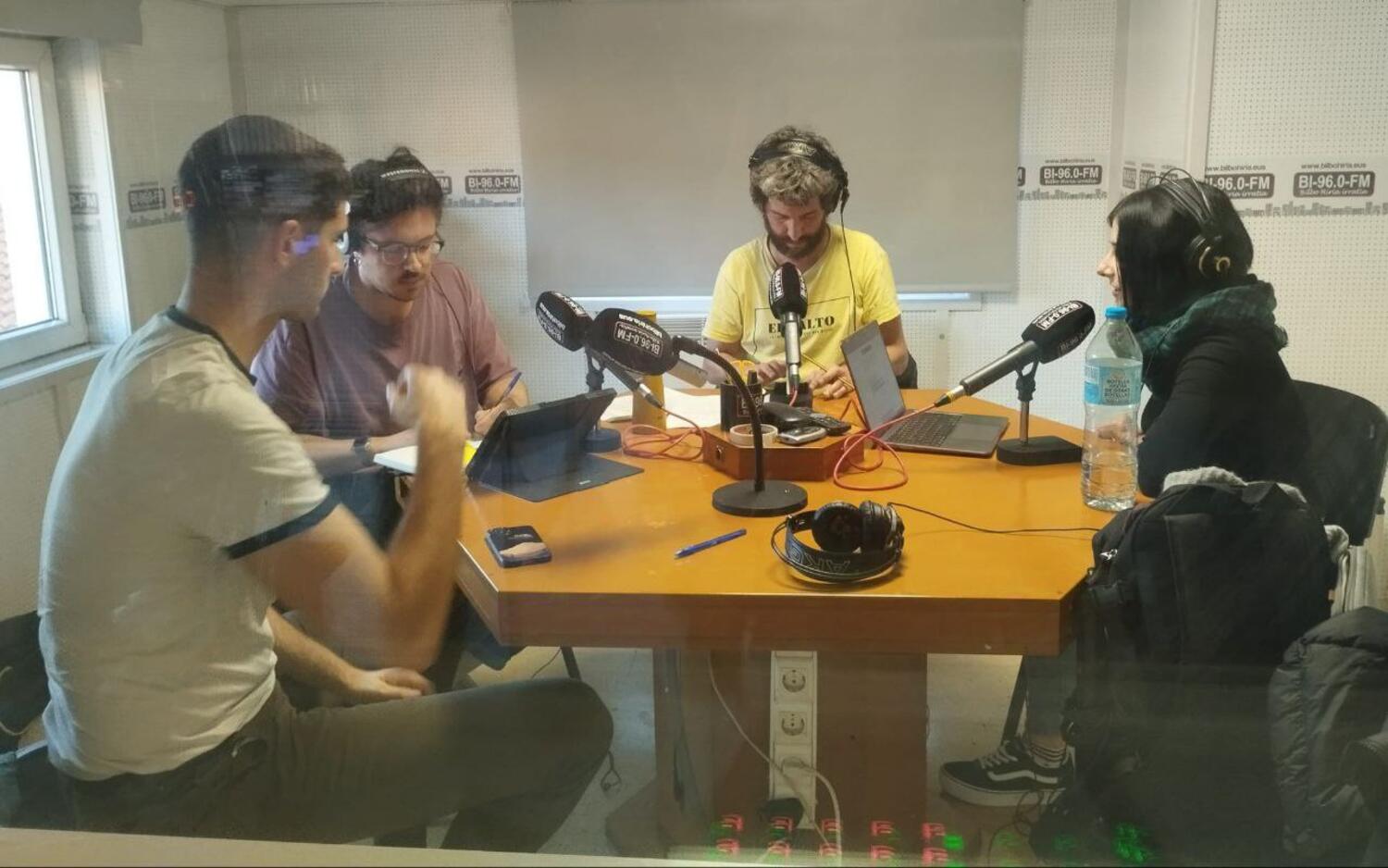You're clear: in old age, housing cooperative.
- Stay at home with family members or supervised professionals, or go to the residence. These are the usual models when old age comes. However, new opportunities are being opened for mutual care, community character, self-management, quality of life and autonomy of the elderly.

“I don’t like the hospital aspect of nursing homes for the elderly and for some the best option is to live at home, but others prefer the challenge of cooperative housing: because they foster relationships, decide in teams, participation, autonomy, activity… and all because it keeps you alive. Retiring and stopping is not my philosophy,” says Asun Fernández Ostolaza. Natural from Eibar, but resident in Bilbao, he is 64 years old and retired from the teaching staff of the Higher Technical School of Magisterium. It is part of the Egunsentia project, which aims to combine adapted apartments and shared spaces for the elderly: “At dawn, we think of a neighborhood as before: each one maintains its privacy, but neighbors know each other, help each other and share spaces to carry out their relationships and actions. Living alone leads to discouragement, insecurity and increasingly fear of the environment, and I am afraid of that”.
“Yes, it’s about recovering the lives they’ve been living for years in small towns and communities. Today it is the house of culture that organizes things and in these cooperative projects it is much easier to organize and decide the activities ourselves, because we are the people who seek it, because those of us who approach a place of this kind have a certain profile and are usually open to learning and teaching,” added Fernando Abajo Soler. Married and with a son, this 54-year-old Sondika billiard continues to work on the cooperative Brisa del Cantábrico project. The project is underway and, although there are 329 partners in Cantabria, 80 of them are Basque and Basque. The impeller of the Cantabrian Breeze, Nemesio Rasillo, wants old age to be different, after nine years of dependence on his mother. Look for autonomy of decision, independence given to you by your house, company, security and, ultimately, a good quality of life in the project: “We do not want to mortgage the lives of our children and our family members. We need their affection and punctual help, but we want to take away from them the burden imposed to care for us and for that it is better that we take care of our lives. Conventional residences are more designed to die than to live, and we don't have enough money to end up in a good residence. It is not enough to receive basic care, wash, eat and dress, we want to age differently, we want independence and a dignified life”.
Asun Fernández: “We think about the neighborhood of yesteryear: everyone keeps their privacy, but neighbors support each other; they share spaces to carry out their relationships and actions”
Fernando Abajo: “People wanting to act, cooperating, driving self-management, in a sustainable energy model… Any city council should dream of bringing it to it”
European model: “Like at home or at home”
About 20% of the population is over 65 years old in Hego Euskal Herria and the number is increasing year after year, especially in CAV (with an aging rate of 145%). “Given this reality, it would be best if the housing and its surroundings (the neighborhood) were conditioned and that the different levels of dependency could also receive aid/services to that extent. The problem is that in youth we enter some homes, we want it to be for life, but they are not designed for old age. As the needs come up to us, we try to solve the deficiencies that we see in our house, but if the environment is not conditioned, we can stay like in a cage, like inmates at home. At the same time, the family support received by the elderly in the Basque Country is very great, and we know the consequences that this has.” The architects Aritz Berastegi and Enrique Etxeberria de Rehabite Espazioa Biziberritzen speak to us. The possibilities offered by the Administration are also detailed: on the one hand, the day centres; on the other hand, the supervised apartments for people with moderate dependency, but the offer is low and, finally, the residence of the elderly, which includes the population aged 65-85 and at all levels of dependency. “However, people only go in the last phase, when they are over 80 years old or have some kind of dementia. We try to extend our stay at home as much as possible, and when we have to go to the center, the environment we find is very violent. Compared to the European model, the main difference is that in our offices there are rooms, because it is a model that comes from hospitals, while in other countries the house is the base. It is an important concept, because leaving your house and entering a room is a great change, in part you lose your personality, your intimacy…”.
In fact, the philosophy that has become widespread in Europe is that of living in old age at home or at home, and since the first 65 years they have a wide range of housing, with less or more aid, with less or more adaptations and specializations, depending on the needs. They have houses that respond to the needs of the moment, with a more interiorized culture of renting and moving, and their headquarters is only planned for the last moment. At the end of this article you will find some examples of fishing in Europe.
Sunrise waiting for a land
“With the cooperative character that the Basques have, how is it that no such project has been launched?” they asked Fernando Abajo more than once. To work yes, we are cooperativists, but when intimacy is present, many are retracted, says Down: “In these projects everyone has their house, but because there are many shared spaces, some don’t like it.” The truth is that in Euskal Herria, here and there, there are projects that aim to build a community housing for old age, but all of them in their beginnings, because money is a burden. The sunrise is probably the most solid project and is not very advanced: “At the moment we are twenty partners and we want to develop the initiative in Bilboaldea, but getting a site is much more expensive than buying a land in Euskal Herria,” says Asun Fernández. It is clear that if the administration is not involved, it will not be able to carry out its purpose: “If the legislation is not amended and we are not left with a ground for an innovative and collaborative project such as ours, for example, for 75 years, as is left to the construction companies of garages, we will not get it through. Another option would be to reform and refurbish a building, but it would also be necessary for the administration to give it to us. Adapting a farmhouse and turning it into a small cohousing for 8-10 people, I know experiences of this kind, but our approach is for about 30 people.”
Last November, the Basque Government announced a novelty within the Housing Master Plan 2018-2020: for those who are unable to access a housing in the free market, it will test in Donostia the model of housing cooperative for public rent buying a plot in Txominenea. You'll see if that opens the way to projects like Sunrise.
Cantabria, 70,000 square meters and 190 rural apartments
Faced with the difficulties of the Egunsentia initiative, several Basques decided to join the Brisa del Cantábrico project, as the terrain is cheaper, as it is viable (to access it, 36,000 euros are requested from the partners). The works are scheduled for the end of 2018. Asun Fernández has not made the change, because he does not want to leave “roots, friends, neighborhood”; Fernando Abajo, on the contrary, is one of those who has moved since dawn: “For old age, that is safe, something safe. If something similar is achieved in the future here, I will always have the opportunity to talk to them and return.”
Brisa del Cantábrico is a participative and self-managed cooperative, a social project. The 70,000 square meters installed in the rural area will allow the construction of 170-190 homes of 50 square meters with garden (other 20 small apartments for guests) with meeting points such as cafeteria, kitchen, dining room, multipurpose rooms, laundry room, silence room, library, gym, therapeutic pool, dressing room, DIY workshop, gardens...
In order to guarantee the age mix, it has been possible to accommodate a maximum of 14 people for each age, between 50 and 70 years, “so that it does not become something geriatric”, explains Abajo. He has also highlighted the advantages of sharing: “Tools, for example, instead of having a full game at home, it’s enough to have a single and small workshop for everyone, and a washing machine, or a professional care: at home, instead of hiring a caregiver or an aide at night, it’s cheaper to do it among some.” The aim is to make it as self-sufficient as possible and to be energetically sustainable, using renewable energies, collecting water from the rain and cultivating the vegetable garden. Its members shall enjoy unity… and freedom: “Everyone will be able to organize themselves to their liking. For example, you can decide to make meals at home, or put a lot of money and so many others in the open dining room.”
Below you have no doubts: “This is a very enriching project that should dream of the city councils of any town bringing it to him. People wanting to act, cooperating, driving self-management, energy sustainable…”.
Asun Fernández: “If the Administration does not abandon the site, it is impossible in Euskal Herria. Buying a land is too expensive”
Fernando Abajo: “We wanted to distinguish well which is the care that the neighbor can take and which is the professional that corresponds to him. I will bring a medication to the neighbor of the pharmacy, but I will not change the diaper.”
As dependency increases?
In the colloquium, the theme has emerged more than once: the affective relationship and mutual care is one of the pillars of the projects, and the structure itself collaborates: “The path that unites the area goes ahead of all the houses, Brisa del Cantábrico,” says Down, and it is important, also for mutual control, because if no one appears, we will immediately realize and go home, to see if it is OK.” Of course, beyond mutual care among members, professional service will also be fundamental: “We wanted to clearly differentiate the border,” explains Abajo, which is the one that corresponds to the care and professional that the neighbor can perform. I'll go to the pharmacy to take the medicine the neighbor needs, but I won't change his diaper." They will have a professional service and a great dependency for people who cannot continue in the apartment, they have three cohabitation units: each cohabitation unit can accommodate ten people and, in addition to personalized care, it has kitchen, dining room, living room, garden and individual room.
Asun Fernández adds that it has already been discussed at dawn: “Our goal is to be a Sunrise until the death of our home, through the aids and professionals that exist, but there are diseases that cause you to lose your head, that lead you to aggressiveness… and in each case we will have to make decisions, talking with each other and with our relatives, to see if it is more convenient to take him to a residence, for example.”
Asun Fernández says that it is painful that the image given of the elderly, if not to belittle them, to infantilize them or to give pessimistic messages such as the collapse of health centers, there are still many contributions they can make. We, at least, have found in this article old ones that want to continue transforming the world.
.jpg)
VARIOUS EUROPEAN MODELS
In addition to housing cooperatives, there are other options for aging: communities that foster conciliation, projects that cover the whole neighborhood, older people with mental illness...
Trabensol: Conscious Crew Project
In their youth housing cooperatives were created; when they had children, the cooperatives of educational centers were based on a more progressive education; and since 2013, the same people have been living in collaborative housing of the Trabensol project in Madrid. It is a social project for old age, bioclimatic, geothermal, which combines individual housing with common spaces: “We have sought the balance between individual and collective life.” For Jaime Moreno, Paloma Rodríguez and Felisa Laíz, the day can start with a Nordic march or with a chi kung, then a little chi kung, a forum cinema in the afternoon, other workshops… “but that doesn’t mean that we have to participate whenever you want, because sometimes you want to be at home, quiet, listening to music or reading”.
The relations in Trabensol are fundamental: “We have a very strong affective environment, and mere physical or intellectual attention in care does not give it to you; human beings need affection.” However, despite the fact that current members are active, they know that there will be times of greater dependency: “We have spaces designed to respond to this reality and the needs presented to us, but we know that they will not be enough and that we will not have all the answers. We work in work committees and in one of them we address the challenges of the future, including health decadence; we are analyzing person-centered care models”.
.jpg)
Pioneering Denmark
In Denmark, the same thing happened here: although nursing homes were designed for a larger age group, only those in the last phase attended. Therefore, in the 1970s, the residences were abandoned for the last stage and the housing model was used. Elderly people have a large housing supply adapted to their needs in the country, and to this end the involvement of the administration is fundamental: when the public housing offer is the administration puts the site and gives economic facilities to the non-profit cooperatives that will carry out the project (good credits…). When it comes to a private initiative, the same thing happens: promoters get the land at a good price and they have to offer it under certain conditions and at limited prices. The Administration also grants a large number of subsidies to ensure the necessary services.
To avoid ghettos, mix
The path chosen in several countries is to incorporate to the housing or housing groups specifically built for the elderly the equipment available for the whole country. Thus, on the first floor, for example, the realization of a supermarket or a school, will involve the rapprochement and confusion of people of all ages so that the elderly do not become isolated.
With a similar goal, in Europe it is a fairly widespread model to make housing promotions for elderly and young people in the same place. To access these homes, age becomes one of the conditions and the intergenerational is guaranteed with the richness that this implies.
Beyond the French region of Turena, in the same building are the College of Primary Education and housing for the elderly – within the Marpa network, read the next point. Thanks to this pioneering initiative, several older people share schools, meals and exits with young people, all of them classmates.
.jpg)
Own for baserritars
Thinking of those who have spent their whole lives in rural areas, since the 1980s the Marpa model has spread in the French State: these are rural homes for the elderly, with the aim of respecting their surroundings to the maximum and avoiding the uproar that suddenly means entering a flat of the city. Here they also have private homes and shared spaces and are designed for up to 24 people. In total, there are about 190 structures managed by associations in the State.
.jpg)
The people of the insane
Hogewey was founded in 2010 in the Netherlands. It has shops, gardens, parks, restaurants, post office… but it is a unique village: most of the population is patient, has some cognitive illness (such as Alzheimer’s) and is designed according to their needs, such as a hospital of 16,000 square meters outdoor. The patients of the population live in homes of five or six people and the objective is that in a normal village they can lead a normal life, maintaining to the maximum their daily habits, as this will imply a lower need for professional care and medicalization. At the same time, people who do not have dementia are aware and prepared to intervene if necessary, and if someone has any abnormal attitude (shouting, undressing…) in order not to be alarmed. It seems that people who start to lose their heads are very willing to go to the bus stops, and Hogewey also has a bus stop, but no bus goes there.
.jpg)
The neighborhood as a destination
The proposal of the architects Berastegi and Etxeberria is to rehabilitate the neighborhoods: to be the neighborhood itself that responds to the different needs, that guarantees the different services or that has conscious and prepared neighbors, such as the so-called “friendly neighborhoods”, that identify the elderly who live alone and come to visit. In the same neighborhood, some households would be adapted to the elderly and the elderly would not have to move elsewhere, or the ageing neighborhoods would suffer deterioration. “In other countries the villages are more dispersed, but we have compact neighborhoods and each has to seek the solution that best suits it. We should look in the neighborhoods.”
The poor management of the Valencian cold drop has led to a change in adverse meteorological alerts, as shown in the first season of "winter". Faced with the threat of rivers overflowing in Hego Euskal Herria, the indications for protection came along several paths, since no... [+]
Alokairuen bidezko espekulazioa oztopatzeko neurria azaroaren 25etik goiti izanen da indarrean Ipar Euskal Herrian. Momentuko, tentsiopean diren Lapurdiko 24 herriei eraginen die: Ahetze, Angelu, Arbona, Arrangoitze, Azkaine, Basusarri, Baiona, Biarritz, Bidarte, Biriatu,... [+]
The disaster caused by the cold drop in Valencia has left us dramatic images, both because of the immediate consequences it has had, and because the future awaiting us has brought us forward: that this type of extreme climate phenomena will be increasingly numerous and serious... [+]









